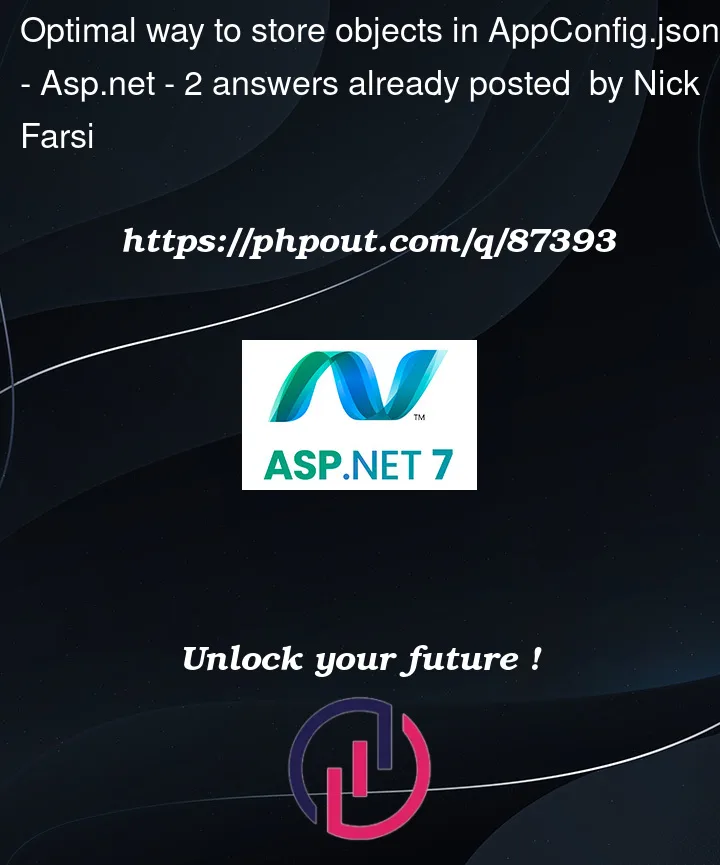My AppConfig.json:
{
"MyTimeZone: "CET",
"RegularString" : "SomeValue",
"AnArray" : ["1","2"]
}
My POCO class:
public class Settings
{
public TimeZoneInfo MyTimeZone { get; set; }
public string RegularString { get; set; }
public IList<string> AnArray { get; set; }
}
Registry.cs:
var configuration = GetConfiguration("AppSettings.json");
services.Configure<Settings>(configuration.GetSection("Settings"));
This of course does not bind "CET" into a valid TimeZoneInfo object. Now the question is what is the best place in my application (a web app) to convert from string to TimeZoneInfo? Is there a way to automatically convert string config values to objects based on certain rules without creating custom converters?




2
Answers
Reference Use DI services to configure options
The complex setting value can be extracted directly from configuration via DI and used to create the time zone and apply it to the settings.
It just my personal opinion but I prefer the MyTimeZone to be a json object instead only a string. Consider the following:
MyTimeZone.ConfigureTimeZoneById is not part of the actual data object. It’s just proxy to bind object to configuration. This how TimeZone class might look like: